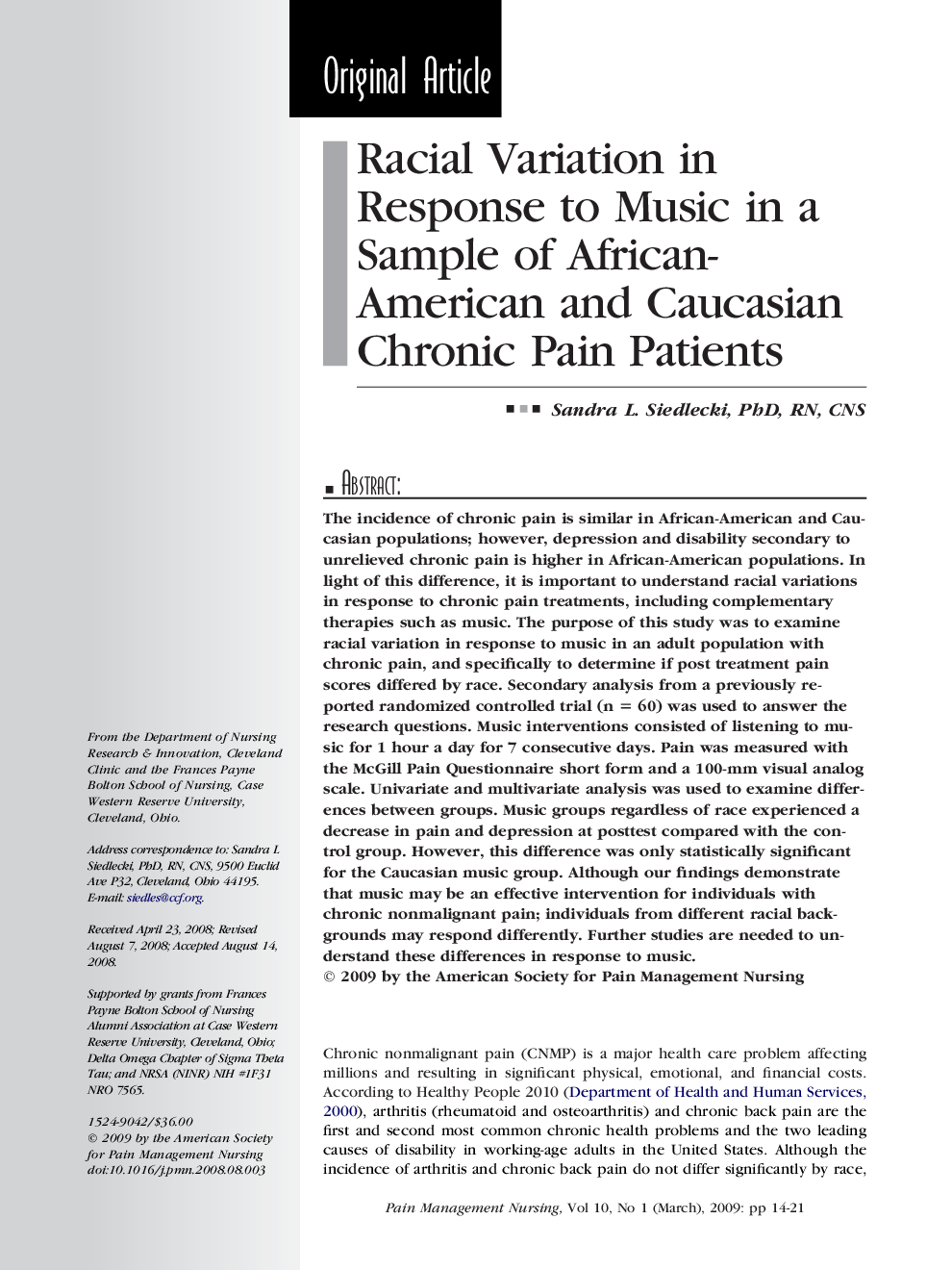| Article ID | Journal | Published Year | Pages | File Type |
|---|---|---|---|---|
| 2673969 | Pain Management Nursing | 2009 | 8 Pages |
The incidence of chronic pain is similar in African-American and Caucasian populations; however, depression and disability secondary to unrelieved chronic pain is higher in African-American populations. In light of this difference, it is important to understand racial variations in response to chronic pain treatments, including complementary therapies such as music. The purpose of this study was to examine racial variation in response to music in an adult population with chronic pain, and specifically to determine if post treatment pain scores differed by race. Secondary analysis from a previously reported randomized controlled trial (n = 60) was used to answer the research questions. Music interventions consisted of listening to music for 1 hour a day for 7 consecutive days. Pain was measured with the McGill Pain Questionnaire short form and a 100-mm visual analog scale. Univariate and multivariate analysis was used to examine differences between groups. Music groups regardless of race experienced a decrease in pain and depression at posttest compared with the control group. However, this difference was only statistically significant for the Caucasian music group. Although our findings demonstrate that music may be an effective intervention for individuals with chronic nonmalignant pain; individuals from different racial backgrounds may respond differently. Further studies are needed to understand these differences in response to music.
